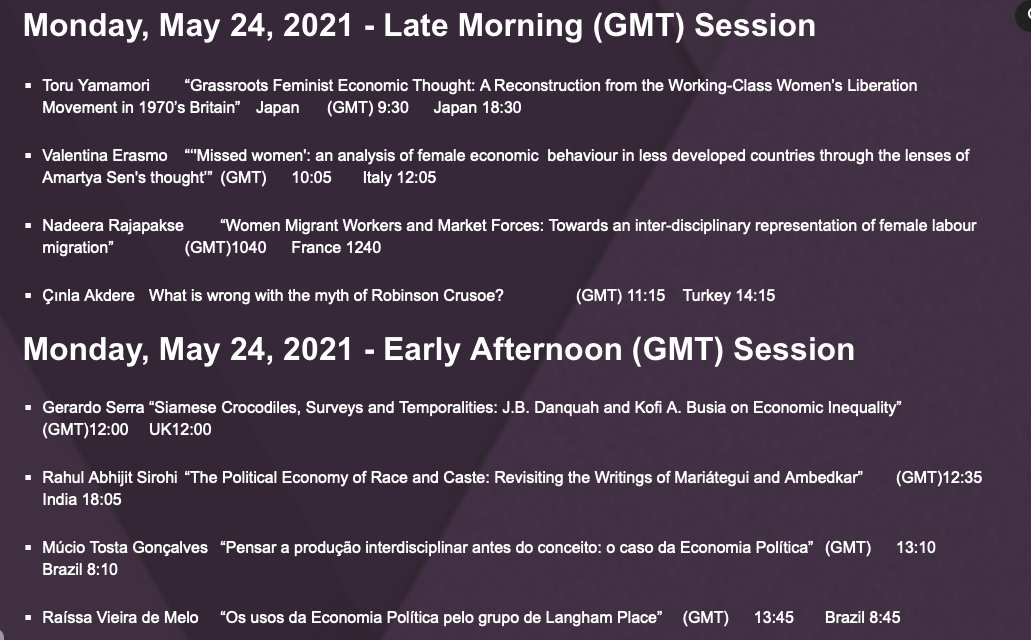1/ In the wake of the NYT article on Robinson, I got emails asking how to feminize history of econ reads & teaching. I didn’t find any online reference list on the history of  https://abs.twimg.com/emoji/v2/... draggable="false" alt="♀" title="Weibliches Zeichen" aria-label="Emoji: Weibliches Zeichen"> economists, so here’s a half-baked one:
https://abs.twimg.com/emoji/v2/... draggable="false" alt="♀" title="Weibliches Zeichen" aria-label="Emoji: Weibliches Zeichen"> economists, so here’s a half-baked one:
2/ caveat: this is not intended as an exhaustive list. I’m not working on this currently (& it& #39;s grading month), so more selective reminiscences of what I read, biased toward my own research interests, & bundled in the framework I myself use to navigate this growing literature
3/My hope is that fellow historians add threads on  https://abs.twimg.com/emoji/v2/... draggable="false" alt="♀" title="Weibliches Zeichen" aria-label="Emoji: Weibliches Zeichen"> (for instance @cleocz on XIX-early XXth century scholarship. Also, check her thread on history of African-American econ https://twitter.com/CleoCZ/status/1345317265676365824.">https://twitter.com/CleoCZ/st... Can someone thread on history of non-Western econs? And on feminist econ?
https://abs.twimg.com/emoji/v2/... draggable="false" alt="♀" title="Weibliches Zeichen" aria-label="Emoji: Weibliches Zeichen"> (for instance @cleocz on XIX-early XXth century scholarship. Also, check her thread on history of African-American econ https://twitter.com/CleoCZ/status/1345317265676365824.">https://twitter.com/CleoCZ/st... Can someone thread on history of non-Western econs? And on feminist econ?
4/ my sense is there are multiple layers of “history of  https://abs.twimg.com/emoji/v2/... draggable="false" alt="♀" title="Weibliches Zeichen" aria-label="Emoji: Weibliches Zeichen"> economists” First one is:
https://abs.twimg.com/emoji/v2/... draggable="false" alt="♀" title="Weibliches Zeichen" aria-label="Emoji: Weibliches Zeichen"> economists” First one is:
I. RECOVER https://abs.twimg.com/emoji/v2/... draggable="false" alt="♀️" title="Weibliches Zeichen" aria-label="Emoji: Weibliches Zeichen"> ERASED FROM CANONICAL HISTORY,
https://abs.twimg.com/emoji/v2/... draggable="false" alt="♀️" title="Weibliches Zeichen" aria-label="Emoji: Weibliches Zeichen"> ERASED FROM CANONICAL HISTORY,
aka econ’s hall of fame in spite of their huge influence. This is of course case of Joan Robinson, on which there is no dearth of historical work!
I. RECOVER
aka econ’s hall of fame in spite of their huge influence. This is of course case of Joan Robinson, on which there is no dearth of historical work!
5/ there’s Aslanbeigui & Oakes’s “life & work” bio https://www.dukeupress.edu/the-provocative-joan-robinson">https://www.dukeupress.edu/the-provo... , the Harcourt-Kerr book (from imperfect competition to Marx to capital) #aboutAuthors">https://www.palgrave.com/gp/book/9781403996404 #aboutAuthors">https://www.palgrave.com/gp/book/9... , a collective book https://www.routledge.com/The-Economics-of-Joan-Robinson/Marcuzzo-Pasinetti-Roncaglia/p/book/9780415756815">https://www.routledge.com/The-Econo... (there& #39;s also a wealth of paper on the 2 capital controversy)
6/ But stopping there is problematic, as it creates a ‘Maricurisation’ phenomenon, aka, “one  https://abs.twimg.com/emoji/v2/... draggable="false" alt="♀" title="Weibliches Zeichen" aria-label="Emoji: Weibliches Zeichen"> is enough to check diversity box, always the same” – something Duflo discusses as ‘tokenism’ https://twitter.com/Undercoverhist/status/1186769722991353856">https://twitter.com/Undercove...
https://abs.twimg.com/emoji/v2/... draggable="false" alt="♀" title="Weibliches Zeichen" aria-label="Emoji: Weibliches Zeichen"> is enough to check diversity box, always the same” – something Duflo discusses as ‘tokenism’ https://twitter.com/Undercoverhist/status/1186769722991353856">https://twitter.com/Undercove...
There are so many https://abs.twimg.com/emoji/v2/... draggable="false" alt="♀" title="Weibliches Zeichen" aria-label="Emoji: Weibliches Zeichen"> whose contributions needed to be recovered
https://abs.twimg.com/emoji/v2/... draggable="false" alt="♀" title="Weibliches Zeichen" aria-label="Emoji: Weibliches Zeichen"> whose contributions needed to be recovered
There are so many
First step was doing kind of census: some work assembled in dictionary of women economists https://www.e-elgar.com/shop/gbp/a-biographical-dictionary-of-women-economists-9781843769026.html">https://www.e-elgar.com/shop/gbp/... & collective biography https://www.routledge.com/A-Bibliography-of-Female-Economic-Thought-up-to-1940/Madden-Pujol-Seiz/p/book/9780415646079">https://www.routledge.com/A-Bibliog...
8/ 2nd step was documenting their lives, works, contexts and resistances. This recent book does this for  https://abs.twimg.com/emoji/v2/... draggable="false" alt="♀" title="Weibliches Zeichen" aria-label="Emoji: Weibliches Zeichen"> econ *all over the globe* – still a rarity https://www.routledge.com/Routledge-Handbook-of-the-History-of-Womens-Economic-Thought/Madden-Dimand/p/book/9780367659783">https://www.routledge.com/Routledge...
https://abs.twimg.com/emoji/v2/... draggable="false" alt="♀" title="Weibliches Zeichen" aria-label="Emoji: Weibliches Zeichen"> econ *all over the globe* – still a rarity https://www.routledge.com/Routledge-Handbook-of-the-History-of-Womens-Economic-Thought/Madden-Dimand/p/book/9780367659783">https://www.routledge.com/Routledge...
3rd is to reinstate their contributions in standard historical narratives:
3rd is to reinstate their contributions in standard historical narratives:
Fields in which recovery work has been done include development econ (from Deane and Hill to Waring, see references here https://twitter.com/Undercoverhist/status/1369222979587080201">https://twitter.com/Undercove... )
and of course, household & consumption econ, with foundational contributions by Kyrk, Holt, Richards, Reid. Many references:
and of course, household & consumption econ, with foundational contributions by Kyrk, Holt, Richards, Reid. Many references:
10/ Becchio’s book covers home econ up to gender & feminist econ in postwar https://www.routledge.com/A-History-of-Feminist-and-Gender-Economics/Becchio/p/book/9781138103757">https://www.routledge.com/A-History... (list of reviews here https://twitter.com/CleoCZ/status/1369619565660041227)
There’s">https://twitter.com/CleoCZ/st... also a great dissertation on the transformation of home econ across the XXth century by Le Tollec https://tel.archives-ouvertes.fr/tel-02881966/document">https://tel.archives-ouvertes.fr/tel-02881...
There’s">https://twitter.com/CleoCZ/st... also a great dissertation on the transformation of home econ across the XXth century by Le Tollec https://tel.archives-ouvertes.fr/tel-02881966/document">https://tel.archives-ouvertes.fr/tel-02881...
11/ See also Work by Phillipy https://unil.academia.edu/DavidPhilippy ">https://unil.academia.edu/DavidPhil... and @MiriamBankovsky https://www.researchgate.net/publication/344678462_A_history_of_early_household_economics_Improving_the_family%27s_contribution_to_industrial_production_and_rationalizing_family_consumption">https://www.researchgate.net/publicati...
In most cases listed above, https://abs.twimg.com/emoji/v2/... draggable="false" alt="♀" title="Weibliches Zeichen" aria-label="Emoji: Weibliches Zeichen"> have signed their work, which was circulated, sometimes much discussed, so that recovery is possible, but not always...
https://abs.twimg.com/emoji/v2/... draggable="false" alt="♀" title="Weibliches Zeichen" aria-label="Emoji: Weibliches Zeichen"> have signed their work, which was circulated, sometimes much discussed, so that recovery is possible, but not always...
In most cases listed above,
12/ A further step, then, is to
II. RECOVER THE *UNCREDITED* CONTRIBUTIONS OF W TO ECON
Best known illustration of such trend is Shetterly’s Hidden Figures, as well as #thanksfortyping movement, which resulted in a just published book https://www.bloomsbury.com/us/thanks-for-typing-9781350150065/">https://www.bloomsbury.com/us/thanks...
II. RECOVER THE *UNCREDITED* CONTRIBUTIONS OF W TO ECON
Best known illustration of such trend is Shetterly’s Hidden Figures, as well as #thanksfortyping movement, which resulted in a just published book https://www.bloomsbury.com/us/thanks-for-typing-9781350150065/">https://www.bloomsbury.com/us/thanks...
13/ Such work is only beginning for econ. Backhouse’s work on Marion Crawford Samuelson https://twitter.com/Undercoverhist/status/986929173527711745">https://twitter.com/Undercove... shows difficulty of getting evidence, in particular on contributions of many econ wives
Another challenge is to recover contributions of W in stats/econometrics/coding
Another challenge is to recover contributions of W in stats/econometrics/coding
14/ But sometimes (like when you write on theory at Stanford or MIT in the 1960s, but there are many other cases), there’s just nothing to recover.
So a large part of the historical work (and teaching) is also to understand
III. WHY WOMEN ARE MISSING
Again, various layers:
So a large part of the historical work (and teaching) is also to understand
III. WHY WOMEN ARE MISSING
Again, various layers:
III.1 Documenting individual biases/sexism/harassment (Jain& #39;s accusations on Myrdal https://thewire.in/women/oxford-university-economist-devaki-jain-sexual-harassment).">https://thewire.in/women/oxf... Don’t know a lot of work on this. Backhouse & I worked on Samuelson’s gender biases ( https://papers.ssrn.com/sol3/papers.cfm?abstract_id=3206042">https://papers.ssrn.com/sol3/pape... , thread https://twitter.com/Undercoverhist/status/977303031472705538">https://twitter.com/Undercove... ), found it hard & complex
16/ There’s much more on a second layer:
III. 2. Documenting collective biases
My reading of feminist econ is that they do just that (but this may be because I’ve read Nelson early on https://www.routledge.com/Feminism-Objectivity-and-Economics/Nelson/p/book/9780415133371">https://www.routledge.com/Feminism-... ). I’m not a specialist, so someone to do a thread on feminist econ?
III. 2. Documenting collective biases
My reading of feminist econ is that they do just that (but this may be because I’ve read Nelson early on https://www.routledge.com/Feminism-Objectivity-and-Economics/Nelson/p/book/9780415133371">https://www.routledge.com/Feminism-... ). I’m not a specialist, so someone to do a thread on feminist econ?
17/ Documenting biases requires delving into how econs view gender gaps & inequalities. See Pujol’s feminist history of econ thought https://www.e-elgar.com/shop/gbp/feminism-and-anti-feminism-in-early-economic-thought-9781852784560.html,">https://www.e-elgar.com/shop/gbp/... @cleocz & @AnnieLouCot’s work on Edgeworth &  https://abs.twimg.com/emoji/v2/... draggable="false" alt="♀" title="Weibliches Zeichen" aria-label="Emoji: Weibliches Zeichen"> wages https://osf.io/vpjec/ ,">https://osf.io/vpjec/&qu... Gouverneur on Mill https://ideas.repec.org/p/ulp/sbbeta/2018-43.html">https://ideas.repec.org/p/ulp/sbb...
https://abs.twimg.com/emoji/v2/... draggable="false" alt="♀" title="Weibliches Zeichen" aria-label="Emoji: Weibliches Zeichen"> wages https://osf.io/vpjec/ ,">https://osf.io/vpjec/&qu... Gouverneur on Mill https://ideas.repec.org/p/ulp/sbbeta/2018-43.html">https://ideas.repec.org/p/ulp/sbb...
18/ Also requires covering neighboring disciplines/fields, as seen in influence of Jacobs on urban econ, or the pre/post Nobel histories of Elinor Ostrom’s life & work:
See collective book https://papers.ssrn.com/sol3/papers.cfm?abstract_id=3762608">https://papers.ssrn.com/sol3/pape... , Johnson https://m.facebook.com/TrackNFieldTalk/posts/171516758105735">https://m.facebook.com/TrackNFie... ...
See collective book https://papers.ssrn.com/sol3/papers.cfm?abstract_id=3762608">https://papers.ssrn.com/sol3/pape... , Johnson https://m.facebook.com/TrackNFieldTalk/posts/171516758105735">https://m.facebook.com/TrackNFie... ...
19/ ...Dekker & Kuchar https://papers.ssrn.com/sol3/papers.cfm?abstract_id=3588236">https://papers.ssrn.com/sol3/pape... , or Locher https://www.researchgate.net/publication/326539417_Historicizing_Elinor_Ostrom_Urban_Politics_International_Development_and_Expertise_in_US_Context_1970-1990">https://www.researchgate.net/publicati...
20/Next level to study missing women is that of
III.3. Institutions
(institutional barriers to https://abs.twimg.com/emoji/v2/... draggable="false" alt="♀" title="Weibliches Zeichen" aria-label="Emoji: Weibliches Zeichen"> entering & staying in econ, & institutional strategies women deployed to break them)
https://abs.twimg.com/emoji/v2/... draggable="false" alt="♀" title="Weibliches Zeichen" aria-label="Emoji: Weibliches Zeichen"> entering & staying in econ, & institutional strategies women deployed to break them)
Major ref is Rossiter’s 3 volumes history of https://abs.twimg.com/emoji/v2/... draggable="false" alt="♀" title="Weibliches Zeichen" aria-label="Emoji: Weibliches Zeichen"> scientists in America https://jhupbooks.press.jhu.edu/title/women-scientists-america">https://jhupbooks.press.jhu.edu/title/wom...
https://abs.twimg.com/emoji/v2/... draggable="false" alt="♀" title="Weibliches Zeichen" aria-label="Emoji: Weibliches Zeichen"> scientists in America https://jhupbooks.press.jhu.edu/title/women-scientists-america">https://jhupbooks.press.jhu.edu/title/wom...
III.3. Institutions
(institutional barriers to
Major ref is Rossiter’s 3 volumes history of
21/ Work has been done in engineering & CS, our piece on history of CSWEP has same goal https://papers.ssrn.com/sol3/papers.cfm?abstract_id=3510857">https://papers.ssrn.com/sol3/pape... (see new work on sociology caucus for comparison https://socwomen.org/about/history-of-sws/the-women/">https://socwomen.org/about/his... ) Qian documents barriers & strategies at Yale.
22/ For long histories of institutions that welcomed US econs  https://abs.twimg.com/emoji/v2/... draggable="false" alt="♀️" title="Weibliches Zeichen" aria-label="Emoji: Weibliches Zeichen"> when econ departments wouldn’t (governments, statistical agencies, other dpts), see work by Dimand & May https://www.researchgate.net/publication/334902654_Women_in_the_Early_Years_of_the_American_Economic_Association">https://www.researchgate.net/publicati... Forget https://journals.openedition.org/oeconomia/1807 ,">https://journals.openedition.org/oeconomia... Madden https://www.researchgate.net/publication/31146755_Female_Contributions_to_Economic_Thought_1900-1940">https://www.researchgate.net/publicati...
https://abs.twimg.com/emoji/v2/... draggable="false" alt="♀️" title="Weibliches Zeichen" aria-label="Emoji: Weibliches Zeichen"> when econ departments wouldn’t (governments, statistical agencies, other dpts), see work by Dimand & May https://www.researchgate.net/publication/334902654_Women_in_the_Early_Years_of_the_American_Economic_Association">https://www.researchgate.net/publicati... Forget https://journals.openedition.org/oeconomia/1807 ,">https://journals.openedition.org/oeconomia... Madden https://www.researchgate.net/publication/31146755_Female_Contributions_to_Economic_Thought_1900-1940">https://www.researchgate.net/publicati...
23/ Overall, documenting  https://abs.twimg.com/emoji/v2/... draggable="false" alt="♀️" title="Weibliches Zeichen" aria-label="Emoji: Weibliches Zeichen"> contributions to econ usually requires going beyond established boundaries of econ discipline and of academia at large (for reasons I will discuss afterwards). Most of these
https://abs.twimg.com/emoji/v2/... draggable="false" alt="♀️" title="Weibliches Zeichen" aria-label="Emoji: Weibliches Zeichen"> contributions to econ usually requires going beyond established boundaries of econ discipline and of academia at large (for reasons I will discuss afterwards). Most of these  https://abs.twimg.com/emoji/v2/... draggable="false" alt="♀" title="Weibliches Zeichen" aria-label="Emoji: Weibliches Zeichen"> were civil servants, wives, activists, translators...
https://abs.twimg.com/emoji/v2/... draggable="false" alt="♀" title="Weibliches Zeichen" aria-label="Emoji: Weibliches Zeichen"> were civil servants, wives, activists, translators...
24/ See for instance the casting of @F_Allisson at UNIL teaches a whole history of econ course by relying exclusively on women contributions : Luxemburg, Webb, Robinson, Goldschmidt-Clermont, and Duflo http://francois.allisson.co/pdf/syllabus-epfl-2018-2020.pdf">https://francois.allisson.co/pdf/sylla...
25/ I& #39;ll finally note that there are few  https://abs.twimg.com/emoji/v2/... draggable="false" alt="♀" title="Weibliches Zeichen" aria-label="Emoji: Weibliches Zeichen"> econ autobiographies on which to rely, like Strober’s https://mitpress.mit.edu/books/sharing-work">https://mitpress.mit.edu/books/sha... (I hope for more in the next decade: Janet, the world is looking at you).
https://abs.twimg.com/emoji/v2/... draggable="false" alt="♀" title="Weibliches Zeichen" aria-label="Emoji: Weibliches Zeichen"> econ autobiographies on which to rely, like Strober’s https://mitpress.mit.edu/books/sharing-work">https://mitpress.mit.edu/books/sha... (I hope for more in the next decade: Janet, the world is looking at you).
Too few interviews as well (one great exception is https://www.routledge.com/Engendering-Economics-Conversations-with-Women-Economists-in-the-United/Emami-Olson/p/book/9780415205566">https://www.routledge.com/Engenderi...
Too few interviews as well (one great exception is https://www.routledge.com/Engendering-Economics-Conversations-with-Women-Economists-in-the-United/Emami-Olson/p/book/9780415205566">https://www.routledge.com/Engenderi...
26/There are several books on  https://abs.twimg.com/emoji/v2/... draggable="false" alt="♀" title="Weibliches Zeichen" aria-label="Emoji: Weibliches Zeichen"> econs under way, so expendable list here
https://abs.twimg.com/emoji/v2/... draggable="false" alt="♀" title="Weibliches Zeichen" aria-label="Emoji: Weibliches Zeichen"> econs under way, so expendable list here
my goal was to provide framework to navigate literature, not to list article/blogs/podcast/movies on such https://abs.twimg.com/emoji/v2/... draggable="false" alt="♀️" title="Weibliches Zeichen" aria-label="Emoji: Weibliches Zeichen"> econ.
https://abs.twimg.com/emoji/v2/... draggable="false" alt="♀️" title="Weibliches Zeichen" aria-label="Emoji: Weibliches Zeichen"> econ.
But there are tons of great resources, feel free to add refs on your model role below
end
my goal was to provide framework to navigate literature, not to list article/blogs/podcast/movies on such
But there are tons of great resources, feel free to add refs on your model role below
end
Afterthoughts: Under "explaining missing women: institutions," I& #39;ll add Cohen& #39;s highlighting paper on  https://abs.twimg.com/emoji/v2/... draggable="false" alt="♀️" title="Weibliches Zeichen" aria-label="Emoji: Weibliches Zeichen">& #39;s fight to create a space within URPE https://www.researchgate.net/publication/330524874_The_radical_roots_of_feminism_in_economics">https://www.researchgate.net/publicati...
https://abs.twimg.com/emoji/v2/... draggable="false" alt="♀️" title="Weibliches Zeichen" aria-label="Emoji: Weibliches Zeichen">& #39;s fight to create a space within URPE https://www.researchgate.net/publication/330524874_The_radical_roots_of_feminism_in_economics">https://www.researchgate.net/publicati...
What& #39;s coming next in terms of diverse histories of economics (gender, race, geography, approaches) can be seen in program of forth HET Diversity Caucus conference, online May 24-25 https://sites.google.com/view/diversityhet">https://sites.google.com/view/dive...

 Read on Twitter
Read on Twitter economists, so here’s a half-baked one:" title="1/ In the wake of the NYT article on Robinson, I got emails asking how to feminize history of econ reads & teaching. I didn’t find any online reference list on the history of https://abs.twimg.com/emoji/v2/... draggable="false" alt="♀" title="Weibliches Zeichen" aria-label="Emoji: Weibliches Zeichen"> economists, so here’s a half-baked one:">
economists, so here’s a half-baked one:" title="1/ In the wake of the NYT article on Robinson, I got emails asking how to feminize history of econ reads & teaching. I didn’t find any online reference list on the history of https://abs.twimg.com/emoji/v2/... draggable="false" alt="♀" title="Weibliches Zeichen" aria-label="Emoji: Weibliches Zeichen"> economists, so here’s a half-baked one:">
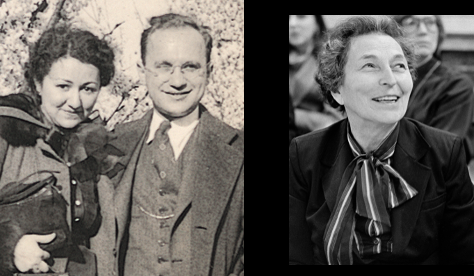 economists, so here’s a half-baked one:" title="1/ In the wake of the NYT article on Robinson, I got emails asking how to feminize history of econ reads & teaching. I didn’t find any online reference list on the history of https://abs.twimg.com/emoji/v2/... draggable="false" alt="♀" title="Weibliches Zeichen" aria-label="Emoji: Weibliches Zeichen"> economists, so here’s a half-baked one:">
economists, so here’s a half-baked one:" title="1/ In the wake of the NYT article on Robinson, I got emails asking how to feminize history of econ reads & teaching. I didn’t find any online reference list on the history of https://abs.twimg.com/emoji/v2/... draggable="false" alt="♀" title="Weibliches Zeichen" aria-label="Emoji: Weibliches Zeichen"> economists, so here’s a half-baked one:">
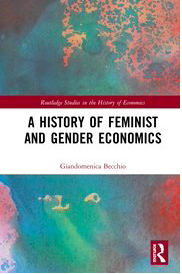 economists, so here’s a half-baked one:" title="1/ In the wake of the NYT article on Robinson, I got emails asking how to feminize history of econ reads & teaching. I didn’t find any online reference list on the history of https://abs.twimg.com/emoji/v2/... draggable="false" alt="♀" title="Weibliches Zeichen" aria-label="Emoji: Weibliches Zeichen"> economists, so here’s a half-baked one:">
economists, so here’s a half-baked one:" title="1/ In the wake of the NYT article on Robinson, I got emails asking how to feminize history of econ reads & teaching. I didn’t find any online reference list on the history of https://abs.twimg.com/emoji/v2/... draggable="false" alt="♀" title="Weibliches Zeichen" aria-label="Emoji: Weibliches Zeichen"> economists, so here’s a half-baked one:">
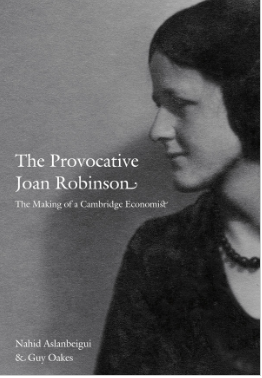 economists, so here’s a half-baked one:" title="1/ In the wake of the NYT article on Robinson, I got emails asking how to feminize history of econ reads & teaching. I didn’t find any online reference list on the history of https://abs.twimg.com/emoji/v2/... draggable="false" alt="♀" title="Weibliches Zeichen" aria-label="Emoji: Weibliches Zeichen"> economists, so here’s a half-baked one:">
economists, so here’s a half-baked one:" title="1/ In the wake of the NYT article on Robinson, I got emails asking how to feminize history of econ reads & teaching. I didn’t find any online reference list on the history of https://abs.twimg.com/emoji/v2/... draggable="false" alt="♀" title="Weibliches Zeichen" aria-label="Emoji: Weibliches Zeichen"> economists, so here’s a half-baked one:">
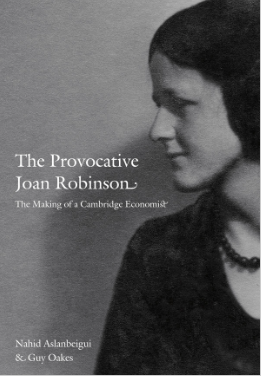 economists” First one is:I. RECOVER https://abs.twimg.com/emoji/v2/... draggable="false" alt="♀️" title="Weibliches Zeichen" aria-label="Emoji: Weibliches Zeichen"> ERASED FROM CANONICAL HISTORY, aka econ’s hall of fame in spite of their huge influence. This is of course case of Joan Robinson, on which there is no dearth of historical work!" title="4/ my sense is there are multiple layers of “history of https://abs.twimg.com/emoji/v2/... draggable="false" alt="♀" title="Weibliches Zeichen" aria-label="Emoji: Weibliches Zeichen"> economists” First one is:I. RECOVER https://abs.twimg.com/emoji/v2/... draggable="false" alt="♀️" title="Weibliches Zeichen" aria-label="Emoji: Weibliches Zeichen"> ERASED FROM CANONICAL HISTORY, aka econ’s hall of fame in spite of their huge influence. This is of course case of Joan Robinson, on which there is no dearth of historical work!">
economists” First one is:I. RECOVER https://abs.twimg.com/emoji/v2/... draggable="false" alt="♀️" title="Weibliches Zeichen" aria-label="Emoji: Weibliches Zeichen"> ERASED FROM CANONICAL HISTORY, aka econ’s hall of fame in spite of their huge influence. This is of course case of Joan Robinson, on which there is no dearth of historical work!" title="4/ my sense is there are multiple layers of “history of https://abs.twimg.com/emoji/v2/... draggable="false" alt="♀" title="Weibliches Zeichen" aria-label="Emoji: Weibliches Zeichen"> economists” First one is:I. RECOVER https://abs.twimg.com/emoji/v2/... draggable="false" alt="♀️" title="Weibliches Zeichen" aria-label="Emoji: Weibliches Zeichen"> ERASED FROM CANONICAL HISTORY, aka econ’s hall of fame in spite of their huge influence. This is of course case of Joan Robinson, on which there is no dearth of historical work!">
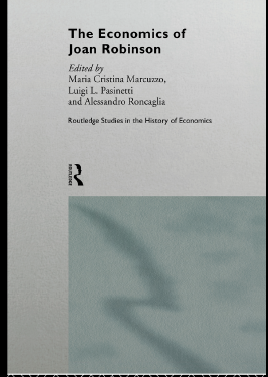 economists” First one is:I. RECOVER https://abs.twimg.com/emoji/v2/... draggable="false" alt="♀️" title="Weibliches Zeichen" aria-label="Emoji: Weibliches Zeichen"> ERASED FROM CANONICAL HISTORY, aka econ’s hall of fame in spite of their huge influence. This is of course case of Joan Robinson, on which there is no dearth of historical work!" title="4/ my sense is there are multiple layers of “history of https://abs.twimg.com/emoji/v2/... draggable="false" alt="♀" title="Weibliches Zeichen" aria-label="Emoji: Weibliches Zeichen"> economists” First one is:I. RECOVER https://abs.twimg.com/emoji/v2/... draggable="false" alt="♀️" title="Weibliches Zeichen" aria-label="Emoji: Weibliches Zeichen"> ERASED FROM CANONICAL HISTORY, aka econ’s hall of fame in spite of their huge influence. This is of course case of Joan Robinson, on which there is no dearth of historical work!">
economists” First one is:I. RECOVER https://abs.twimg.com/emoji/v2/... draggable="false" alt="♀️" title="Weibliches Zeichen" aria-label="Emoji: Weibliches Zeichen"> ERASED FROM CANONICAL HISTORY, aka econ’s hall of fame in spite of their huge influence. This is of course case of Joan Robinson, on which there is no dearth of historical work!" title="4/ my sense is there are multiple layers of “history of https://abs.twimg.com/emoji/v2/... draggable="false" alt="♀" title="Weibliches Zeichen" aria-label="Emoji: Weibliches Zeichen"> economists” First one is:I. RECOVER https://abs.twimg.com/emoji/v2/... draggable="false" alt="♀️" title="Weibliches Zeichen" aria-label="Emoji: Weibliches Zeichen"> ERASED FROM CANONICAL HISTORY, aka econ’s hall of fame in spite of their huge influence. This is of course case of Joan Robinson, on which there is no dearth of historical work!">
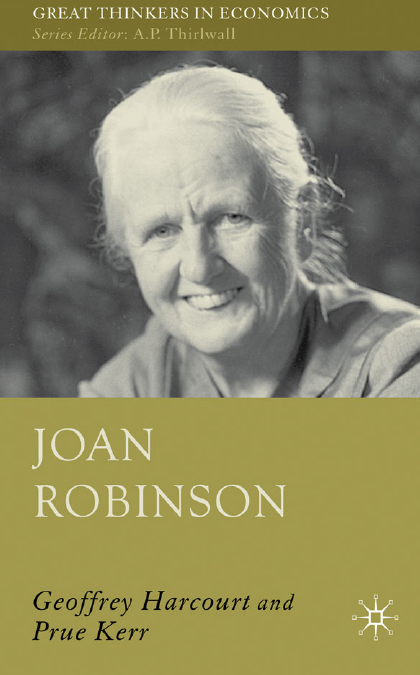 economists” First one is:I. RECOVER https://abs.twimg.com/emoji/v2/... draggable="false" alt="♀️" title="Weibliches Zeichen" aria-label="Emoji: Weibliches Zeichen"> ERASED FROM CANONICAL HISTORY, aka econ’s hall of fame in spite of their huge influence. This is of course case of Joan Robinson, on which there is no dearth of historical work!" title="4/ my sense is there are multiple layers of “history of https://abs.twimg.com/emoji/v2/... draggable="false" alt="♀" title="Weibliches Zeichen" aria-label="Emoji: Weibliches Zeichen"> economists” First one is:I. RECOVER https://abs.twimg.com/emoji/v2/... draggable="false" alt="♀️" title="Weibliches Zeichen" aria-label="Emoji: Weibliches Zeichen"> ERASED FROM CANONICAL HISTORY, aka econ’s hall of fame in spite of their huge influence. This is of course case of Joan Robinson, on which there is no dearth of historical work!">
economists” First one is:I. RECOVER https://abs.twimg.com/emoji/v2/... draggable="false" alt="♀️" title="Weibliches Zeichen" aria-label="Emoji: Weibliches Zeichen"> ERASED FROM CANONICAL HISTORY, aka econ’s hall of fame in spite of their huge influence. This is of course case of Joan Robinson, on which there is no dearth of historical work!" title="4/ my sense is there are multiple layers of “history of https://abs.twimg.com/emoji/v2/... draggable="false" alt="♀" title="Weibliches Zeichen" aria-label="Emoji: Weibliches Zeichen"> economists” First one is:I. RECOVER https://abs.twimg.com/emoji/v2/... draggable="false" alt="♀️" title="Weibliches Zeichen" aria-label="Emoji: Weibliches Zeichen"> ERASED FROM CANONICAL HISTORY, aka econ’s hall of fame in spite of their huge influence. This is of course case of Joan Robinson, on which there is no dearth of historical work!">
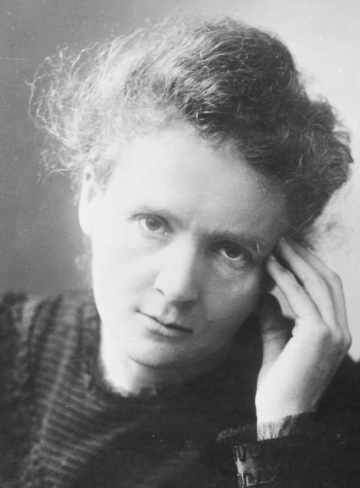 is enough to check diversity box, always the same” – something Duflo discusses as ‘tokenism’ https://twitter.com/Undercove... There are so many https://abs.twimg.com/emoji/v2/... draggable="false" alt="♀" title="Weibliches Zeichen" aria-label="Emoji: Weibliches Zeichen"> whose contributions needed to be recovered" title="6/ But stopping there is problematic, as it creates a ‘Maricurisation’ phenomenon, aka, “one https://abs.twimg.com/emoji/v2/... draggable="false" alt="♀" title="Weibliches Zeichen" aria-label="Emoji: Weibliches Zeichen"> is enough to check diversity box, always the same” – something Duflo discusses as ‘tokenism’ https://twitter.com/Undercove... There are so many https://abs.twimg.com/emoji/v2/... draggable="false" alt="♀" title="Weibliches Zeichen" aria-label="Emoji: Weibliches Zeichen"> whose contributions needed to be recovered">
is enough to check diversity box, always the same” – something Duflo discusses as ‘tokenism’ https://twitter.com/Undercove... There are so many https://abs.twimg.com/emoji/v2/... draggable="false" alt="♀" title="Weibliches Zeichen" aria-label="Emoji: Weibliches Zeichen"> whose contributions needed to be recovered" title="6/ But stopping there is problematic, as it creates a ‘Maricurisation’ phenomenon, aka, “one https://abs.twimg.com/emoji/v2/... draggable="false" alt="♀" title="Weibliches Zeichen" aria-label="Emoji: Weibliches Zeichen"> is enough to check diversity box, always the same” – something Duflo discusses as ‘tokenism’ https://twitter.com/Undercove... There are so many https://abs.twimg.com/emoji/v2/... draggable="false" alt="♀" title="Weibliches Zeichen" aria-label="Emoji: Weibliches Zeichen"> whose contributions needed to be recovered">
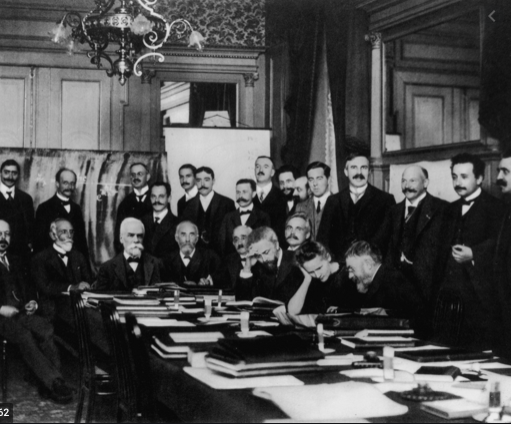 is enough to check diversity box, always the same” – something Duflo discusses as ‘tokenism’ https://twitter.com/Undercove... There are so many https://abs.twimg.com/emoji/v2/... draggable="false" alt="♀" title="Weibliches Zeichen" aria-label="Emoji: Weibliches Zeichen"> whose contributions needed to be recovered" title="6/ But stopping there is problematic, as it creates a ‘Maricurisation’ phenomenon, aka, “one https://abs.twimg.com/emoji/v2/... draggable="false" alt="♀" title="Weibliches Zeichen" aria-label="Emoji: Weibliches Zeichen"> is enough to check diversity box, always the same” – something Duflo discusses as ‘tokenism’ https://twitter.com/Undercove... There are so many https://abs.twimg.com/emoji/v2/... draggable="false" alt="♀" title="Weibliches Zeichen" aria-label="Emoji: Weibliches Zeichen"> whose contributions needed to be recovered">
is enough to check diversity box, always the same” – something Duflo discusses as ‘tokenism’ https://twitter.com/Undercove... There are so many https://abs.twimg.com/emoji/v2/... draggable="false" alt="♀" title="Weibliches Zeichen" aria-label="Emoji: Weibliches Zeichen"> whose contributions needed to be recovered" title="6/ But stopping there is problematic, as it creates a ‘Maricurisation’ phenomenon, aka, “one https://abs.twimg.com/emoji/v2/... draggable="false" alt="♀" title="Weibliches Zeichen" aria-label="Emoji: Weibliches Zeichen"> is enough to check diversity box, always the same” – something Duflo discusses as ‘tokenism’ https://twitter.com/Undercove... There are so many https://abs.twimg.com/emoji/v2/... draggable="false" alt="♀" title="Weibliches Zeichen" aria-label="Emoji: Weibliches Zeichen"> whose contributions needed to be recovered">
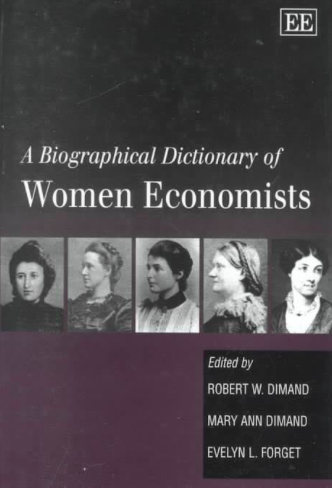
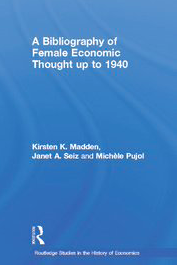
 econ *all over the globe* – still a rarity https://www.routledge.com/Routledge... 3rd is to reinstate their contributions in standard historical narratives:" title="8/ 2nd step was documenting their lives, works, contexts and resistances. This recent book does this for https://abs.twimg.com/emoji/v2/... draggable="false" alt="♀" title="Weibliches Zeichen" aria-label="Emoji: Weibliches Zeichen"> econ *all over the globe* – still a rarity https://www.routledge.com/Routledge... 3rd is to reinstate their contributions in standard historical narratives:">
econ *all over the globe* – still a rarity https://www.routledge.com/Routledge... 3rd is to reinstate their contributions in standard historical narratives:" title="8/ 2nd step was documenting their lives, works, contexts and resistances. This recent book does this for https://abs.twimg.com/emoji/v2/... draggable="false" alt="♀" title="Weibliches Zeichen" aria-label="Emoji: Weibliches Zeichen"> econ *all over the globe* – still a rarity https://www.routledge.com/Routledge... 3rd is to reinstate their contributions in standard historical narratives:">
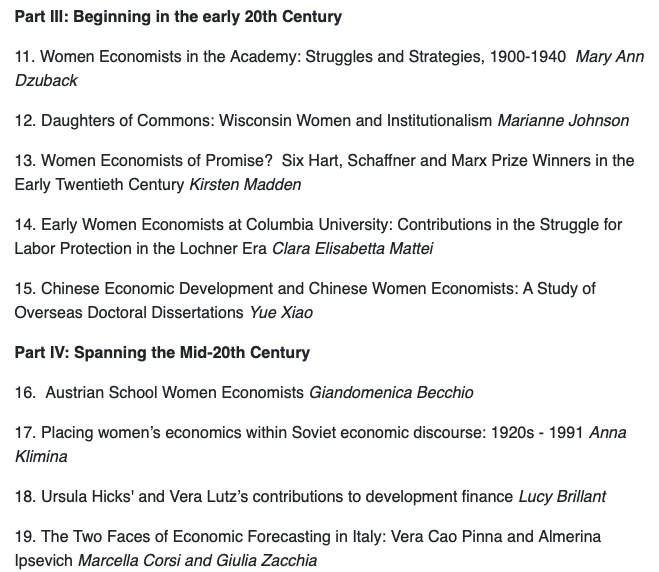 econ *all over the globe* – still a rarity https://www.routledge.com/Routledge... 3rd is to reinstate their contributions in standard historical narratives:" title="8/ 2nd step was documenting their lives, works, contexts and resistances. This recent book does this for https://abs.twimg.com/emoji/v2/... draggable="false" alt="♀" title="Weibliches Zeichen" aria-label="Emoji: Weibliches Zeichen"> econ *all over the globe* – still a rarity https://www.routledge.com/Routledge... 3rd is to reinstate their contributions in standard historical narratives:">
econ *all over the globe* – still a rarity https://www.routledge.com/Routledge... 3rd is to reinstate their contributions in standard historical narratives:" title="8/ 2nd step was documenting their lives, works, contexts and resistances. This recent book does this for https://abs.twimg.com/emoji/v2/... draggable="false" alt="♀" title="Weibliches Zeichen" aria-label="Emoji: Weibliches Zeichen"> econ *all over the globe* – still a rarity https://www.routledge.com/Routledge... 3rd is to reinstate their contributions in standard historical narratives:">
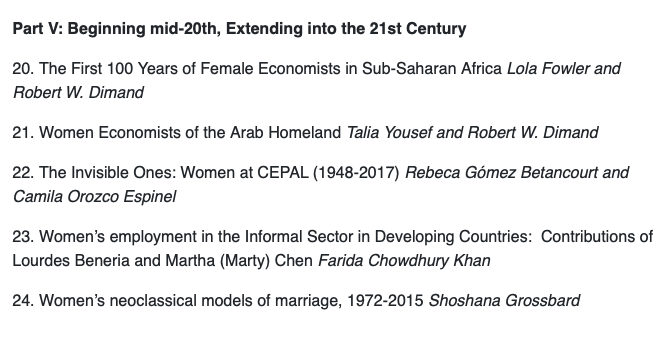 econ *all over the globe* – still a rarity https://www.routledge.com/Routledge... 3rd is to reinstate their contributions in standard historical narratives:" title="8/ 2nd step was documenting their lives, works, contexts and resistances. This recent book does this for https://abs.twimg.com/emoji/v2/... draggable="false" alt="♀" title="Weibliches Zeichen" aria-label="Emoji: Weibliches Zeichen"> econ *all over the globe* – still a rarity https://www.routledge.com/Routledge... 3rd is to reinstate their contributions in standard historical narratives:">
econ *all over the globe* – still a rarity https://www.routledge.com/Routledge... 3rd is to reinstate their contributions in standard historical narratives:" title="8/ 2nd step was documenting their lives, works, contexts and resistances. This recent book does this for https://abs.twimg.com/emoji/v2/... draggable="false" alt="♀" title="Weibliches Zeichen" aria-label="Emoji: Weibliches Zeichen"> econ *all over the globe* – still a rarity https://www.routledge.com/Routledge... 3rd is to reinstate their contributions in standard historical narratives:">
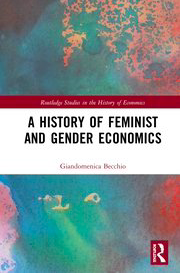

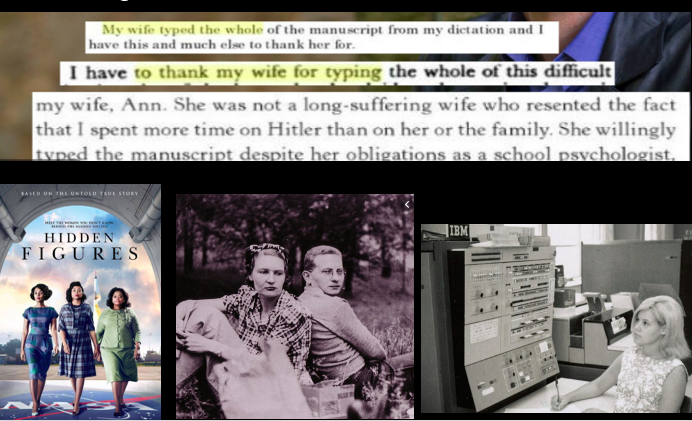

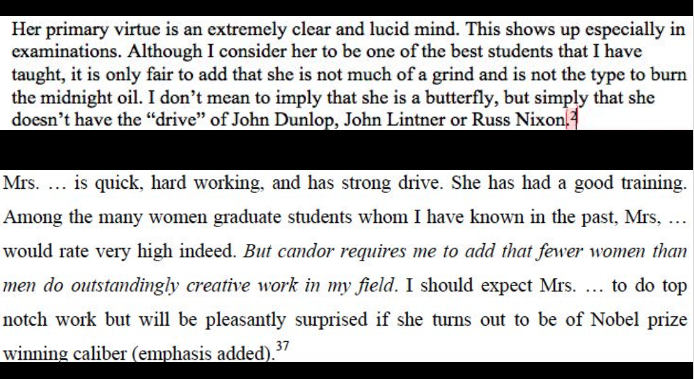
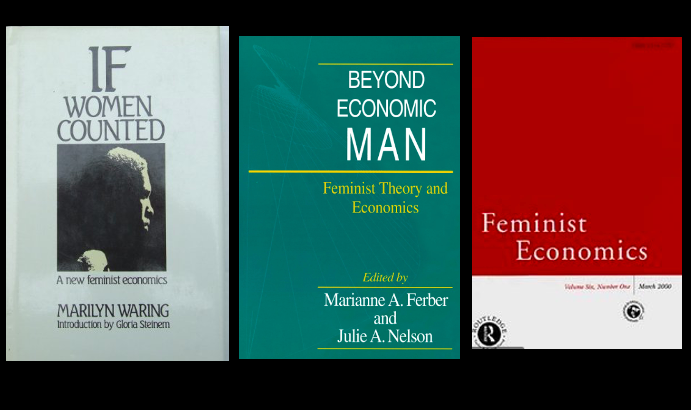
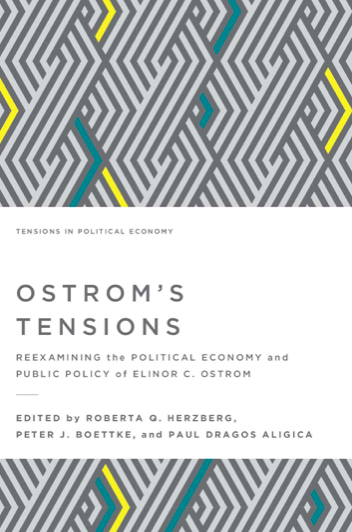

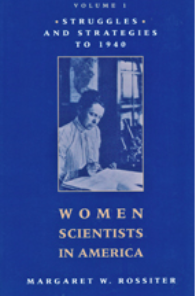 entering & staying in econ, & institutional strategies women deployed to break them)Major ref is Rossiter’s 3 volumes history of https://abs.twimg.com/emoji/v2/... draggable="false" alt="♀" title="Weibliches Zeichen" aria-label="Emoji: Weibliches Zeichen"> scientists in America https://jhupbooks.press.jhu.edu/title/wom..." title="20/Next level to study missing women is that of III.3. Institutions (institutional barriers to https://abs.twimg.com/emoji/v2/... draggable="false" alt="♀" title="Weibliches Zeichen" aria-label="Emoji: Weibliches Zeichen"> entering & staying in econ, & institutional strategies women deployed to break them)Major ref is Rossiter’s 3 volumes history of https://abs.twimg.com/emoji/v2/... draggable="false" alt="♀" title="Weibliches Zeichen" aria-label="Emoji: Weibliches Zeichen"> scientists in America https://jhupbooks.press.jhu.edu/title/wom...">
entering & staying in econ, & institutional strategies women deployed to break them)Major ref is Rossiter’s 3 volumes history of https://abs.twimg.com/emoji/v2/... draggable="false" alt="♀" title="Weibliches Zeichen" aria-label="Emoji: Weibliches Zeichen"> scientists in America https://jhupbooks.press.jhu.edu/title/wom..." title="20/Next level to study missing women is that of III.3. Institutions (institutional barriers to https://abs.twimg.com/emoji/v2/... draggable="false" alt="♀" title="Weibliches Zeichen" aria-label="Emoji: Weibliches Zeichen"> entering & staying in econ, & institutional strategies women deployed to break them)Major ref is Rossiter’s 3 volumes history of https://abs.twimg.com/emoji/v2/... draggable="false" alt="♀" title="Weibliches Zeichen" aria-label="Emoji: Weibliches Zeichen"> scientists in America https://jhupbooks.press.jhu.edu/title/wom...">
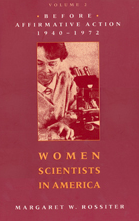 entering & staying in econ, & institutional strategies women deployed to break them)Major ref is Rossiter’s 3 volumes history of https://abs.twimg.com/emoji/v2/... draggable="false" alt="♀" title="Weibliches Zeichen" aria-label="Emoji: Weibliches Zeichen"> scientists in America https://jhupbooks.press.jhu.edu/title/wom..." title="20/Next level to study missing women is that of III.3. Institutions (institutional barriers to https://abs.twimg.com/emoji/v2/... draggable="false" alt="♀" title="Weibliches Zeichen" aria-label="Emoji: Weibliches Zeichen"> entering & staying in econ, & institutional strategies women deployed to break them)Major ref is Rossiter’s 3 volumes history of https://abs.twimg.com/emoji/v2/... draggable="false" alt="♀" title="Weibliches Zeichen" aria-label="Emoji: Weibliches Zeichen"> scientists in America https://jhupbooks.press.jhu.edu/title/wom...">
entering & staying in econ, & institutional strategies women deployed to break them)Major ref is Rossiter’s 3 volumes history of https://abs.twimg.com/emoji/v2/... draggable="false" alt="♀" title="Weibliches Zeichen" aria-label="Emoji: Weibliches Zeichen"> scientists in America https://jhupbooks.press.jhu.edu/title/wom..." title="20/Next level to study missing women is that of III.3. Institutions (institutional barriers to https://abs.twimg.com/emoji/v2/... draggable="false" alt="♀" title="Weibliches Zeichen" aria-label="Emoji: Weibliches Zeichen"> entering & staying in econ, & institutional strategies women deployed to break them)Major ref is Rossiter’s 3 volumes history of https://abs.twimg.com/emoji/v2/... draggable="false" alt="♀" title="Weibliches Zeichen" aria-label="Emoji: Weibliches Zeichen"> scientists in America https://jhupbooks.press.jhu.edu/title/wom...">
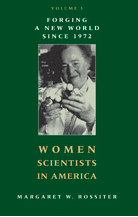 entering & staying in econ, & institutional strategies women deployed to break them)Major ref is Rossiter’s 3 volumes history of https://abs.twimg.com/emoji/v2/... draggable="false" alt="♀" title="Weibliches Zeichen" aria-label="Emoji: Weibliches Zeichen"> scientists in America https://jhupbooks.press.jhu.edu/title/wom..." title="20/Next level to study missing women is that of III.3. Institutions (institutional barriers to https://abs.twimg.com/emoji/v2/... draggable="false" alt="♀" title="Weibliches Zeichen" aria-label="Emoji: Weibliches Zeichen"> entering & staying in econ, & institutional strategies women deployed to break them)Major ref is Rossiter’s 3 volumes history of https://abs.twimg.com/emoji/v2/... draggable="false" alt="♀" title="Weibliches Zeichen" aria-label="Emoji: Weibliches Zeichen"> scientists in America https://jhupbooks.press.jhu.edu/title/wom...">
entering & staying in econ, & institutional strategies women deployed to break them)Major ref is Rossiter’s 3 volumes history of https://abs.twimg.com/emoji/v2/... draggable="false" alt="♀" title="Weibliches Zeichen" aria-label="Emoji: Weibliches Zeichen"> scientists in America https://jhupbooks.press.jhu.edu/title/wom..." title="20/Next level to study missing women is that of III.3. Institutions (institutional barriers to https://abs.twimg.com/emoji/v2/... draggable="false" alt="♀" title="Weibliches Zeichen" aria-label="Emoji: Weibliches Zeichen"> entering & staying in econ, & institutional strategies women deployed to break them)Major ref is Rossiter’s 3 volumes history of https://abs.twimg.com/emoji/v2/... draggable="false" alt="♀" title="Weibliches Zeichen" aria-label="Emoji: Weibliches Zeichen"> scientists in America https://jhupbooks.press.jhu.edu/title/wom...">
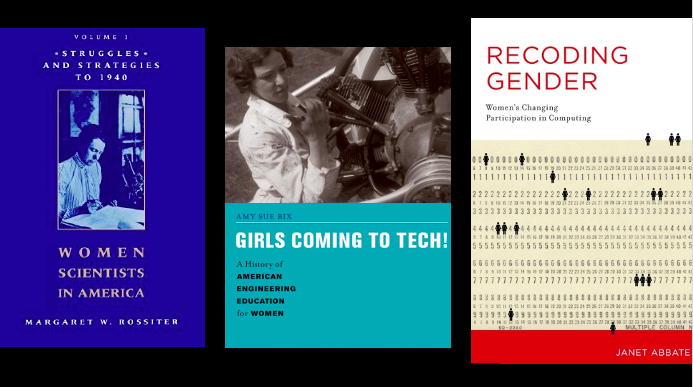
 econ autobiographies on which to rely, like Strober’s https://mitpress.mit.edu/books/sha... (I hope for more in the next decade: Janet, the world is looking at you). Too few interviews as well (one great exception is https://www.routledge.com/Engenderi..." title="25/ I& #39;ll finally note that there are few https://abs.twimg.com/emoji/v2/... draggable="false" alt="♀" title="Weibliches Zeichen" aria-label="Emoji: Weibliches Zeichen"> econ autobiographies on which to rely, like Strober’s https://mitpress.mit.edu/books/sha... (I hope for more in the next decade: Janet, the world is looking at you). Too few interviews as well (one great exception is https://www.routledge.com/Engenderi...">
econ autobiographies on which to rely, like Strober’s https://mitpress.mit.edu/books/sha... (I hope for more in the next decade: Janet, the world is looking at you). Too few interviews as well (one great exception is https://www.routledge.com/Engenderi..." title="25/ I& #39;ll finally note that there are few https://abs.twimg.com/emoji/v2/... draggable="false" alt="♀" title="Weibliches Zeichen" aria-label="Emoji: Weibliches Zeichen"> econ autobiographies on which to rely, like Strober’s https://mitpress.mit.edu/books/sha... (I hope for more in the next decade: Janet, the world is looking at you). Too few interviews as well (one great exception is https://www.routledge.com/Engenderi...">
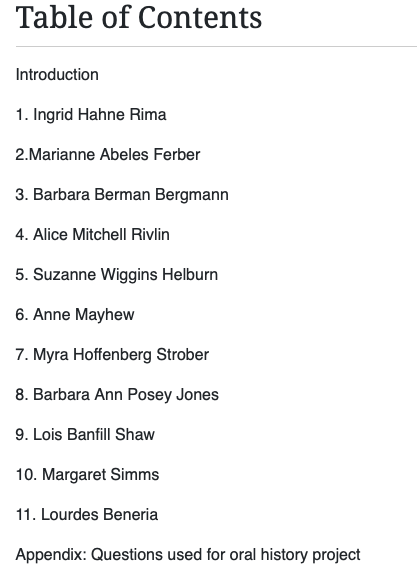 econ autobiographies on which to rely, like Strober’s https://mitpress.mit.edu/books/sha... (I hope for more in the next decade: Janet, the world is looking at you). Too few interviews as well (one great exception is https://www.routledge.com/Engenderi..." title="25/ I& #39;ll finally note that there are few https://abs.twimg.com/emoji/v2/... draggable="false" alt="♀" title="Weibliches Zeichen" aria-label="Emoji: Weibliches Zeichen"> econ autobiographies on which to rely, like Strober’s https://mitpress.mit.edu/books/sha... (I hope for more in the next decade: Janet, the world is looking at you). Too few interviews as well (one great exception is https://www.routledge.com/Engenderi...">
econ autobiographies on which to rely, like Strober’s https://mitpress.mit.edu/books/sha... (I hope for more in the next decade: Janet, the world is looking at you). Too few interviews as well (one great exception is https://www.routledge.com/Engenderi..." title="25/ I& #39;ll finally note that there are few https://abs.twimg.com/emoji/v2/... draggable="false" alt="♀" title="Weibliches Zeichen" aria-label="Emoji: Weibliches Zeichen"> econ autobiographies on which to rely, like Strober’s https://mitpress.mit.edu/books/sha... (I hope for more in the next decade: Janet, the world is looking at you). Too few interviews as well (one great exception is https://www.routledge.com/Engenderi...">
